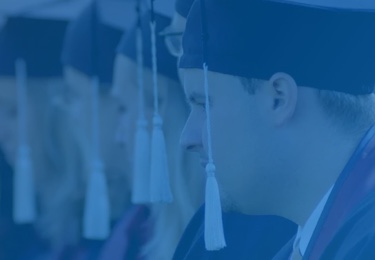PhD Position | Machine Learning in Laser Physics and Extreme OpticsVollpromotion
Deutsch, Englisch
Arbeitssprache
München
Ort
30. Apr. 2024
Bewerbungsende
01. Jul. 2024
Antrittsdatum
Content Navigation
Überblick
Anzahl offener Stellen
1
Laufzeit
01. Jul. 2024 für 3 Jahre
Bewerbungsfrist endet am
30. Apr. 2024
Finanzierung
Ja
Art der Promotion
Vollpromotion
Arbeitssprache
- Deutsch
- Englisch
Erforderlicher Abschluss
Master
Studienfelder
Lasertechnik, Optoelektronik, Optotechnik, Photonik, Angewandte Informatik, Angewandte Mathematik, Astronomie, Astrophysik, Experimentalphysik, Physik, Theoretische Physik
Beschreibung
Beschreibung
Introduction
The Centre for Advanced Laser Applications (CALA) of LMU Munich, led by Nobel laureate Prof. Ferenc Krausz, stands at the forefront of laser physics research. With this call the Centre's DOLPHIN Group (Data-driven optimization for Laser Physics and Interactions) seeks talented and motivated candidates for a fully-funded PhD position at the interface between machine learning, laser physics and extreme optics.
The DOLPHIN group's research spans various areas, including AI-assisted diagnostics for high-power lasers, efficient optimization of laser-plasma accelerators, and the advancement of machine learning methods themselves. By leveraging Bayesian principles and information theory, the team is developing novel techniques for tasks such as reconstructing complex spatio-temporal information from limited data and efficiently exploring high-dimensional parameter spaces in laser-plasma accelerators. Our efforts are directed towards pioneering applications in compact light sources and exploring the potential for laser-driven fusion. A particularly exciting outcome of our research is the development of compact, cost-effective hyperspectral cameras. This advancement promises to make hyperspectral imaging accessible in consumer electronics, such as smartphones, and enhance sophisticated scientific instruments.
______________________________________________________________________________________
What We Offer
- Innovative Research: At the DOLPHIN group, we are pioneering the integration of advanced computational methods and deep physics insights to lead the development of AI and XAI (Explainable Artificial Intelligence) tools within the high-power laser community. Our collaborative efforts with top global institutions are not only expanding the frontiers of high-power laser physics but also fostering the creation of transformative technologies.
- World-Class Research Environment: The team is based at the Centre for Advanced Laser Applications (CALA) of LMU Munich, affiliated to the chair of Nobel laureate Prof. Ferenc Krausz. LMU is frequently ranked among the best universities in Germany and one of the top universities in physical sciences worldwide. Our group offers a vibrant research environment and close connections to other leading institutions such as University of Oxford and Ecole Polytechnique. Join a vibrant community that fosters intellectual growth and offers comprehensive support and training to enhance your skills and knowledge.
- Cutting-Edge Facilities: Access to state-of-the-art facilities, including the ATLAS-3000 multi-petawatt laser system, provide an unparalleled platform for your research. Facilities further include an in-house GPU cluster and a dedicated development laboratory with access to multiple laser systems.
- Competitive Funding and Benefits: Receive a fully-funded PhD position with a competitive salary according to Germany's public TVL system, including comprehensive healthcare coverage. Additionally, Munich consistently ranks as one of the world's most livable cities, offering a high quality of life and easy access to recreational activities
- Professional Development: Opportunities for professional growth, including publishing in high-impact journals, presenting at international conferences in both physics and machine learning, and possibilities to pursue both scientific and commercial applications of our technologies. Successful applicants may furthermore be able to join the International Max Planck Research School on Advanced Photon Science.
______________________________________________________________________________________
Candidate Qualifications and Attributes
We are in search of outstanding individuals who exemplify excellence in academia and research, to join us at the intersection of machine learning and laser physics. Ideal candidates will embody the following qualifications:
- Academic Excellence: Possess a Master’s degree with distinction in physics, mathematics, computer science, or engineering. Candidates should demonstrate a strong academic record that reflects their dedication and capability in their chosen field.
- Research Passion and Expertise: We seek candidates with a strong interest and expertise in any of the following: experimental laser physics, optical physics, or machine learning. Your eagerness to drive forward groundbreaking research in these areas is what sets you apart. Experience in multiple fields is an advantage, but not a requirement.
- Technical Proficiency: We value candidates with strong programming skills, especially in Python. While a deep understanding of machine learning methodologies, particularly Bayesian approaches, is highly regarded, we also welcome those with a keen interest to develop their expertise in this area. Your ability to apply technical skills to tackle complex challenges is essential.
- Communication and Language Skills: Fluent in English with strong communication skills for sharing ideas and results in an international setting.
Qualified applicants will undergo an assessment test and interview. The start of the PhD can be flexibly arranged between July and December 2024.
______________________________________________________________________________________
Application
Please send questions and applications (including a short letter of motivation, CV, university certificates with grades, and names and email addresses of two potential references) to the project coordinator, Dr. Andreas Döpp.
______________________________________________________________________________________
Further reading
- A. Döpp, C. Eberle, S. Howard, F. Irshad, J. Lin, M. Streeter, Data-driven science and machine learning methods in laser–plasma physics, High Power Laser Science and Engineering, 11, 55 (2023)
- F. Irshad, S. Karsch and A. Döpp, Leveraging Trust for Joint Multi-Objective and Multi-Fidelity Optimization, Machine Learning: Science and Technology (2024)
- S. Howard, P. Norreys, A. Döpp, CoordGate: Efficiently Computing Spatially-Varying Convolutions in Convolutional Neural Networks, British Machine Vision Conference (2023)
- N. Weisse, J. Esslinger, S. Howard, et al., Measuring spatio-temporal couplings using modal spatio-spectral wavefront retrieval, Opt. Express 31, 19733-19745 (2023)
More Information: https://www.pulse.physik.uni-muenchen.de
Erforderliche Dokumente
Erforderliche Dokumente
- Motivationsschreiben
- Lebenslauf
- Zeugnisse, Zertifikate
- Referenzen
